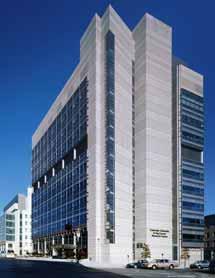The Ferrando Laboratory is endeavoring to understand the molecular mechanisms that promote and sustain the malignant proliferation and survival of leukemic cells. We are engaged in a number of projects analyzing the functions of specific oncogenes and their role in the pathogenesis of childhood leukemia using a combination of genomic technologies, biochemical and genetic analysis. The lab’s research is focused on the cellular and molecular biology of T-cell lymphoblastic leukemia, an aggressive malignancy that results from the cancerous transformation of the progenitors that normally generate the cellular elements of the immune system. Our goal is to uncover the mechanisms that operate in leukemic cells to disrupt normal cell growth and survival, and to translate this understanding on to clinical use through the identification of therapeutic targets for the design of highly effective and less toxic, molecularly-tailored antileukemic drugs.
For more detailed information about our ongoing research, click here.
Click here to see the complete list of publications from the Ferrando lab.
Adolfo Ferrando, M.D., Ph.D. is Associate Professor of Pediatrics and Pathology at Columbia University. His group at the Institute for Cancer Genetics works on the genetic and molecular basis of acute lymphoblastic leukemia using a combination of genomic technologies and biochemical, structural biology and epigenetic analyses. Over the last 10 years these studies have uncovered the functions of NOTCH1 (PNAS 2006; Nat Med 2007, PNAS 2009; Nat Med 2009, Nat Med 2014, Nat Med 2015) and the TLX1 and TLX3 oncogenes (Nat Med 2010, Nat Med 2012) in the pathogenesis of T-cell acute lymphoblastic leukemia (T-ALL). In addition his group has identified and functionally characterized numerous genes somatically mutated in T-ALL (Nat Med 2007, Cancer Cell 2013, Blood 2009,Nat Genet 2010, Nat Med 2010, J Exp Med 2011, Nat Med 2012, Nat Med 2013) and in peripheral T-cell lymphomas (Nat Genet 2014, Nat Genet 2015). Major areas of interest in the Ferrando lab are the elucidation of mechanisms of clonal evolution and resistance to chemotherapy in relapsed ALL, the functional characterization of key leukemia oncogenes and tumor suppressors, and the identification of therapeutic targets and novel synergistic drug combinations for the treatment of high risk leukemias.
Our laboratory is on the 4th floor of the Irving Cancer Research Center building, located between 166th and 167th streets on Saint Nicholas Ave. just accross the street from the NYP Adult Emergency main entrance. Subway lines 1 or A C to the 168th Street Station.
